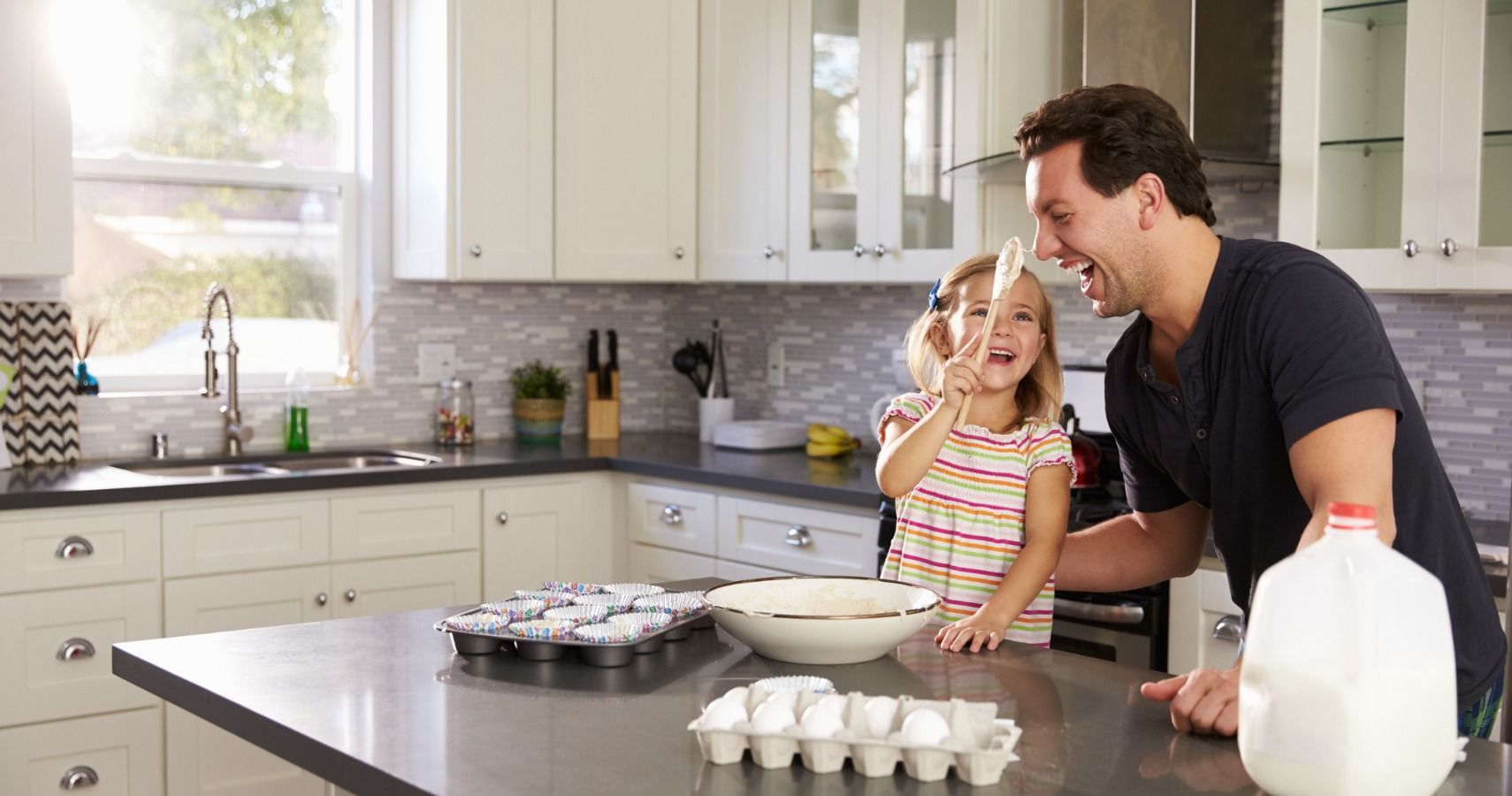A lot of moms and dads would love to get their children to help out more in the kitchen, but just don’t know how. Believe it or not, it’s never too early to teach your child cooking basics, as there are a lot of different skills that can be taught in what a lot of people consider the most important room in the house. There are several different ways that you can get your child to help out in the kitchen.
Prep
Prepping is a huge part of the cooking process and if you can get your kids to help out in the prep work, you would be surprised of all the things they get to learn. After all, it’s a good opportunity to teach kids how to measure and take instructions, regardless of how well they know their arithmetic. Kids learn math and measurement skills before they learn those words. You can help your child hone basic math skills by doing something as simple as counting eggs or pouring water into a measuring cup. Plus, it teaches kids basic skills.
Pour
Actually, make that pour, stir, smash or even sprinkle! Toddlers can learn to pour both wet and dry ingredients into soups, stews, salads and baked goods. A lot of educational experts agree that hands-on cooking activities help children develop pride and confidence in their skills and abilities. There’s also the physical developments: chopping, squeezing, spreading, and mixing are all cooking skills that help develop a child's small muscle control and eye-hand coordination.
Sample
This has got to be the best part: it’s without a doubt that every child loves to sample the meals that are being made in the kitchen. As a matter of fact, who doesn’t like licking the bowl clean after you help mom mix cake batter? Not only should toddlers get a ‘taste’ of what’s to come for lunch, dinner, or dessert, but they can also do their part in cleaning up the kitchen, too. Have dish cloths and a broom handy for messy moments, and let your kids help sweep and wipe counter tops.
Eat Together
Eating together is not just important for children, it's important for every family member. Kids who eat with their parents are less likely to be overweight or develop abnormal eating behaviors than those who have fewer family meal together. Plus, there's no denying that eating home-cooked meals is associated with consuming less fat, sugar and calories for all family members.
READ NEXT: Slow Cooker Hacks For Busy Moms Who Don't Want To Spend All Day In The Kitchen

